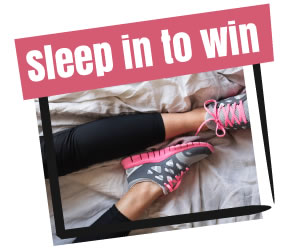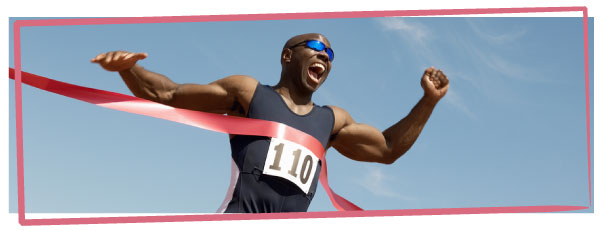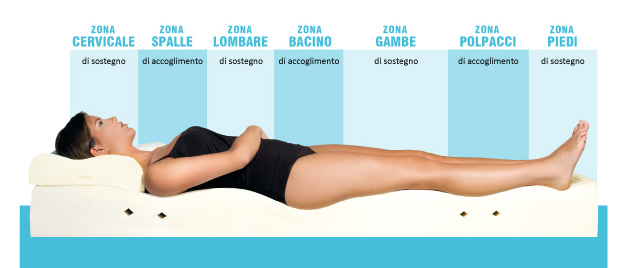
Who does not like to sleep? If there is one thing that will probably unite all of us is the pleasure of sleep. However, it often happens that we do not give the right importance to it ... Nights spent in nightclubs or in front of the TV series or with our smartphone in our hands immersed in the net with various socials, prevent us from giving the right space to this valuable moment.
Whether you are a businessman, an employee, or a competitive athlete, sleeping for the right hours at night always lets you do the utmost . Most importantly, if you belong to the latter category, the winning strategy is to give yourself a good amount of sleep, even greater than the one recommended on average for each individual. Let us once again turn away the proverb that says "who sleeps does not fish"!
There are many scientific researches proclaiming loudly that sleeping is not simply a physiological need, but it is an activity that allows us to live our days in the best way and that can lengthen our lives. On average each of us should sleep at least 7 hours per night to be perfectly charged and responsive the following day but if we talk about sportsmen the number of hours goes up to 10.
Sleeping at least 10 hours a night ensures sports performance of real champions or at least increases the success rates. The more the brain is awake and rested, the higher the performance will be. A real revelation for all athletes!
During sleep the body produces a hormone called GH which is responsible for muscle growth and which, thanks to its activity, burns the fats of our body. So if you want to get ready for that marathon you have liked to do but never had the courage, or you want to lift that barbell that has the chance to weigh even more than you do, run right into bed!

The advice that many sleep specialists give to athletes and sportsmen of all kinds is to create a routine between sleep and sports: sleep at the same time and train by following the weekly program.
The athlete needs to be transformed into a sort of "clock", respecting regularly the sleep-wake rhythm associated with the circadian hormone secretion rhythm. Guaranteing the right hours of sleep in your body every day, it gives provides energy and a psycho-physical recovery. A craving not only for the heart and brain but even for the skin!
In addition, it has been scientifically proven that aerobic exercise improves sleep quality and it also influences positively the mood and vitality of the person who practices it.
In short, sport helps to sleep and the sleep helps athletes!
Be careful, however, not to practice intense sports activity before falling asleep. This would not help to sleep, indeed, because of the release of adrenaline,it could cause annoying insomnia.
So, in short, what to do and do not do to improve the quality of sleep, sports and even metabolism?
- Eat regularly and do not stuff yourself;
- Drink much and frequently;
- Do not lie down immediately after the sporting performance, especially if you have had an intense workout;
- Sleep in the best position. Choose a mattress that fits your physiological curves and allows the unload of muscular fatigue, is an option you should not underestimate. Marion recommends athletics a support with a differentiated lift that can adapt actively to the body weight of the user.
From the picture below, it is understood that when the marked area has a SUPPORTING lift, the mattress has the function of supporting the weight, unlike when the designated area has a GRANTING lift, the mattress accommodates and adapts to the curves of our body. This results in a perfect balance of the spine.

Only with the right harmony between lifestyle, food, training and sleep, you will get the best results both in sport and silhouette!

CURIOSITY
The world of professional athletes has taken seriously what these scientific researches suggest ,in fact , some NBA (basketball) and NHL (hockey) teams have included in their staff a new figure, the so-called sleep coach, as to say an expert in sleep. What have been helpful are the various examinations and tools, among them the actigraphy (a method that allows to reconstruct the sleep-wake rhythms) which is able to correlate the data obtained with those of the sport performance and to suggest the winning formula for each athlete.
